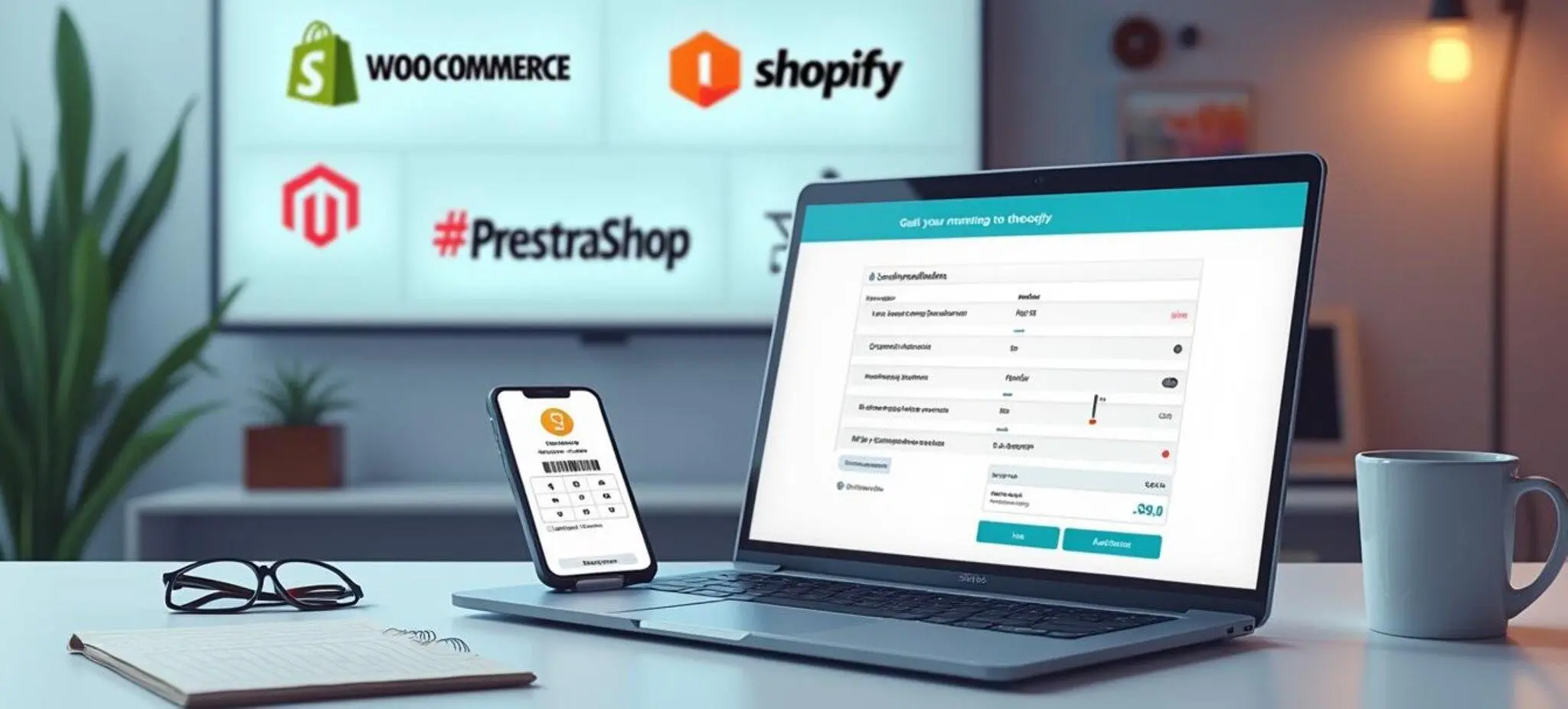Published: August 23, 2025 | Last updated: August 23, 2025
To properly plan a marketing campaign from a tax perspective, an e-commerce seller must, at the planning stage, determine the form of the promotion, the status of the participants, the prize-awarding mechanism, and the type of reward. Each of these elements is significant for the organizer's costs, tax obligations, and legal risk.
Vague regulations, unintentional violations of rules, or the mistaken assumption that "it's just a promotion" are a straight path to disputes with tax authorities and the risk of financial penalties. Many owners of small and medium-sized e-commerce stores act in good faith when organizing promotional campaigns, without realizing the formal consequences of their actions.
In this article, you will learn the specific steps you need to take to properly plan your marketing campaign—both from a legal and tax perspective. You will also find out how modern digital services, technology, and innovations can help you, especially in the context of convenient payment processing and settlement automation.
Table of Contents
- Who does the marketing campaign apply to?
- Scale and scope of the promotion—how many participants do you plan to reward?
- Participant status: consumer, business, employee, or seller?
- Promotion mechanism: contest, drawing, or premium sale?
- Prizes—form, value, tax obligations
- Technology in the service of taxes—automation of settlements and payment processing
- Frequently Asked Questions (FAQ)
- Promotional planning and taxes—information in a nutshell
- The type of participant (e.g., consumer, business owner, employee) affects how prizes are taxed.
- The promotional mechanism, such as a contest, lottery, or premium sale, determines the legal form and tax obligations.
- The form and value of the prize determine its taxation with PIT (Personal Income Tax) and VAT—not every prize is subject to the same regulations.
- Ignorance of the law does not exempt you from responsibility—working with a tax advisor and using technology streamlines marketing campaign planning.
Who does the marketing campaign apply to?
The first and most crucial question you must ask yourself is: who will be the participant in my marketing campaign? This may seem trivial, but it is precisely what determines the scope of your obligations to tax authorities and the possibility of applying available tax reliefs.
The legal status of the participant affects the taxation of prizes:
- Consumers: Prizes may be tax-exempt (up to PLN 2,000 for contests).
- Individuals conducting business activities: Prizes are treated as business income—no exemption.
- Employees: This is regulated by the Personal Income Tax Act—often requires PIT based on the tax scale.
In many e-commerce businesses, a lack of precision in the definition of participants in the regulations is enough to risk the tax office challenging the promotion.
Practical Tip:
Clearly define your target group—this not only facilitates campaign communication but also serves as a document for auditing and control.
Scale and scope of the promotion—how many participants do you plan to reward?
This is another element that affects the legal classification. You need to answer two questions:
- Participant circle—is the promotion open to everyone, or is it limited to specific individuals (e.g., sellers)?
- Number of rewarded individuals—will prizes go to everyone, or only to the winners?
Legal form depending on the scale:
- Contest: winners are the best, competitive task, a small number of people are rewarded.
- Premium sale: every person who meets the conditions receives a prize.
- Loyalty program: points or bonuses for purchases, often complex settlements and taxes.
IMPORTANT:
The name doesn't matter. The mechanism and the circle of participants determine the legal and tax assessment of your promotion.
Participant status: consumer, business, employee, or seller?
When planning, you must determine whether you are directing the promotion to:
- Your customers (businesses or consumers),
- Your employees (internal programs),
- Sellers of your products (e.g., B2B incentive programs),
- Related parties (e.g., distributor collaborators).
In each of these situations, there are different tax obligations:
- Consumers— possible PIT exemptions (up to PLN 2,000).
- Entrepreneurs— income from business activity, no exemptions.
- Employees— obligation to calculate PIT and ZUS contributions if additional conditions are met.
Promotion mechanism—contest, drawing, or premium sale?
This is one of the most important aspects from the perspective of tax and gambling regulations.
The promotion mechanism must comply with the law:
- Contest: a creative element, evaluation by a jury, winnings taxed with a flat-rate 10% PIT (for consumers).
- Drawing / Lottery: requires consent under the Gambling Act. Without consent—risk of high penalties.
- Premium sale: prizes for a purchase—exempt from PIT up to PLN 2,000 if directed at individuals (does not apply to entrepreneurs).
Beware of drawings:
If the random element is the dominant mechanism and you do not have permission from the Ministry of Finance, you risk being classified as an illegal gambling game.
Prizes—form, value, tax obligations
The type and value of the prize affect reporting and tax obligations:
- Cash and bank transfers: always taxable, PIT obligation.
- Vouchers, gift cards, prepaid cards: treated as non-cash benefits, may generate a VAT obligation.
- Products and services: risk of VAT on the gratuitous transfer of goods and low-value gifts.
Prize value and PIT:
- Up to PLN 2,000— PIT exemption in some cases (e.g., contest for consumers).
- Above this amount— obligation to pay tax.
If you declare that the organizer will cover the tax, you must settle this tax. Writing "the organizer covers the tax" in the regulations is not enough—you must physically pay it to the tax office.
Convenient payment processing? Check out payment solutions from Przelewy24—you can automate prizes and transactions, reducing tax and formal errors.
Technology in the service of taxes—automation of settlements and payment processing
Modern digital services help to face the challenge of correctly settling a marketing campaign. If you run an e-commerce store, use:
- Automated generation of PIT-8C / PIT-11—sending forms to customers / collaborators.
- Secure payment API to send prizes without the need for manual accounting of each transaction.
- Document audit—you can automate recurring promotions from a formal standpoint.
Innovations in e-commerce do not end with performance marketing—they also include technology that supports a secure business model.
Frequently Asked Questions (FAQ)
1. Can I organize a contest without paying tax?
Only if the prizes are up to PLN 2,000 and the participants are individuals not engaged in business activity. Otherwise, PIT applies.
2. Do I have to report a marketing campaign to the tax office?
Not every one—a promotion with a random element (lottery) or the transfer of a high-value prize requires reporting. It is worth seeking the opinion of a tax advisor.
3. Can I deduct a marketing campaign as a business expense?
Yes, as long as you can demonstrate a connection to sales promotion and development. It is worth having documentation: regulations, a list of participants, invoices.
Promotional planning and taxes—information in a nutshell
A good marketing campaign does not end with a good idea. Its effectiveness and safety depend on refining several key elements:
- Determine exactly who will be the participant—their legal status affects taxes.
- Ensure the campaign mechanism complies with regulations—watch out for the random element.
- Choose the form and value of the prizes—they can affect PIT and VAT.
- Use technology—settlement automation helps avoid errors.
Convenient payment methodsfor your customers are an opportunity to grow your business by efficiently settling marketing campaigns.
Sources:
- Act on Personal Income Tax (Journal of Laws 1991 No. 80, item 350)
- Act on Gambling (Journal of Laws 2009 No. 201, item 1540)
- Regulations of the Minister of Finance regarding tax exemptions
- Websites: gov.pl, podatki.gov.pl



